Compare other products
We currently don't have that product, but here are others to consider:
How we picked theseFinder Score for mobile plans
We've scored over 300 mobile plans on everything from cost to data allowance and important features.
Our experts give each plan a score out of 10 - totally fair, with no commercial strings attached.
What is a prepaid plan?
Simply, a prepaid mobile plans is where you pay for your usage before you use it. You'll bring your own phone and pay a single price every month - no surprise extra charges.
There are also no lock-in contracts, so you have heaps of flexibility. If you aren't happy with your service, you can switch to a new provider while keeping your phone number.
How do prepaid recharges work?
In the old days, you'd buy a recharge from the supermarket each month, then call the number on the receipt. These days, you can still recharge manually each month, but you'll probably do it from your provider's app or website.
Most people use auto-recharge though. This lets your telco charge your credit card or savings account each month, so you never have to think about recharging. It's really good stuff.
How long is the recharge period?
The recharge period is the amount of time that you can use your prepaid plan before your recharge expires. For most plans, this will about a month - so you'll need to recharge every month. However, there are long-expiry plans with up to 365-day recharge periods.
Here are the 3 main types of plans you'll come across:
- Month-to-month plans: These plans will expire every month if you don't recharge them. Typically you'll have unlimited national calls and texts, and a set amount of data you can use each month (which may roll-over if you auto-recharge).
- Long-expiry plans: These plans expire mostly every 90 days, 180 days or 365. They're great if you want to set and forget your mobile plan. They're also quite popular with people who don't use much mobile data.
- Pay-as-you-go plans: These plans don't have a recharge people at all. Instead you'll pay for a certain amount of credit, which is used up whenever you make a call, send a text, or use the internet. These are pretty old school plans, and aren't that common anymore.

"Prepaid plans used to be those plans where you'd run out of credit and have to line up at Woolworths to get it recharged. They're much easier these days - I have a prepaid plan that I essentially set and forget thanks to auto-recharges being enabled. My plan automatically renews itself after each expiry period so I don't have to worry about it."
Prepaid vs postpaid mobile plans
Let's clarify what we mean by 'postpaid' before comparing it to prepaid plans. Postpaid mobile plans come in 2 main flavours, with a phone contract and without a phone.
- With a phone contract: These bundle a phone plan and a phone payment plan. You'll get a new phone upfront, then pay off the phone month by month. Let's say your plan costs $40 a month and the phone repayment is $50 a month. Your total bill will be $90 each month until the end of the contract, normally 24 or 36 months.
- Without a phone (BYO): Postpaid plans without a phone require you to bring your own device. You'll just receive a bill at the end each month. These plans sometimes come with contracts and/or the change of extra charges, but otherwise operate a lot like prepaid plans with auto-recharge. As such, they're not very common anymore.
Pros and cons of prepaid plans
Prepaid plans are honestly great for most people, in large part because they're cheap, have no lock in contracts and are really flexible. The only exception might be if you want a new phone and aren't in a position to pay for it upfront.
Pros of prepaid plans
- Budget-friendly. Know exactly how much you pay each month. No excess charges, no nasty surprises.
- Flexible. No lock-in contracts, so change plans whenever you want. Or change phones. Or your provider. Go crazy.
- BYO phone. If you're happy with a hand-me-down or older phone, you can save a lot of money on prepaid.
Cons of prepaid plans
- Active recharging. Without auto-recharge, you'll have to remember to recharge each month.
- BYO phone. If you want a fancy new flagship phone, you'll need to pay for it upfront.
How much do prepaid plans cost?
The average cost of month-to-month prepaid plans on Finder is around $39. However, the cost can vary depending on how much data you need, the network you're after and if you need any other perks such as international call inclusions.
- Monthly data: The higher your data limit, the more you can expect to pay.
- Mobile network: There are 3 different mobile networks in Australia: the Telstra, Optus and Vodafone network. Telstra is faster and covers more of the country, but can be a lot more expensive.
- Network technology: Prepaid mobile plans operate on 4G or 5G networks. 5G is faster and newer, so plans with 5G access tend to be a bit pricier.
Phone calls and texts within Australia don't tend to affect prepaid plan prices anymore, with most plans offering unlimited calls and texts. The exception to this is international calls and texts, as well as global roaming, both of which will either increase the price or require an add-on pack.
How much can you save on a cheaper prepaid plan?
We've calculated potential savings over a 12-month period by comparing the price difference between the cheapest and most expensive monthly prepaid plans on Finder (as of January 2026).
We looked at 5 common monthly data limits and found the average savings to be $281. Here's the full list of savings for each data allowance:
How much data do you need?
There's no point in paying for data you don't use, so it pays to figure out your actual needs. These days we're connected to Wi-Fi a lot of the time anyway.
The best way to figure out your data usage is to check your current mobile plan. You'll be able to find your data usage in your provider's app or when you login on their website. If you don't have access to that, use our data usage calculator before choosing a new plan.
The average Aussie uses around 9GB (prepaid) and 19GB (postpaid) of mobile data per month. Unless your data needs are very low, it might be a good idea to start with a plan that offers anywhere between 15-20GB and see how you go.
With that in mind, the average cost of mobile plans with 15-20GB is around $26 a month.
"If you're in a position to buy a phone outright, prepaid mobile plans are a great option as you don't have to be on a long-term contract. They give much more flexibility. One thing I learnt when figuring out a prepaid option was to not assume I needed masses of data given my phone is often connected to Wi-Fi. So I started with a smaller amount of data (which was cheaper). If I need more later I can easily upgrade to a higher data option with the same provider."
Prepaid mobile network coverage
You've got the choice of 3 networks in Australia: Telstra, Optus and Vodafone. Telstra covers the most and is the fastest, but it quite a lot more expensive. Vodafone and Optus are, in practice, about as good as each other, but each will cover different areas a little differently.
Smaller providers (known as MVNOs) will often offer coverage from 1 of the big 3 providers at cheaper rates. For example, Felix and TPG both use the Vodafone network, while amaysim and OnePass Mobile (formerly Catch Connect) use the Optus network.
Do you need the Telstra network?
If you live near a big city like Sydney, Melbourne or Adelaide, you'll probably be fine with the Optus or Vodafone network. They have great coverage across most cities at a much more reasonable price than the Telstra network.
If you live outside a major city (let's say smaller than Newcastle or Geelong) then you may need to get a plan on the Telstra network. Even if the towns and cities in your area have coverage with Optus and Vodafone, the highways or backroads are much more likely to be Telstra-only. If Telstra itself is too pricey, consider a smaller provider using the Telstra network, like ALDI or Boost.
What features can I expect on a prepaid plan?
Outside of calls, texts and data there are a few other features to keep an eye out for when comparing prepaid plans:
Data rollover
Some providers allow data rollover or data banking so you can keep any data you didn't use after your plan expires. This is a great way to get the most value out of your plan.
International calls
Some prepaid calls include unlimited international calls or a limited amount of international call credit. Calls are generally limited to lists of certain countries (this varies by provider). Great for users with family and friends overseas with limited other ways to connect.
Endless data
A few providers such as felix and Vodafone offer "endless" or "infinite" data on some prepaid plans. In felix's case you get unlimited data capped at a speed of 40Mbps while with Vodafone you get infinite data at speeds of up to 1.5Mbps once you use up your original data allowance (similar to a postpaid plan).
eSIMs
Not only are eSIMs environmentally friendly, they're also very convenient. With this option, you can switch to your new provider in just a few minutes. No need to visit a store or wait for your SIM to arrive in the mail.
Which is the best prepaid service provider?
The best provider will depend on exactly what you're after, how much you're willing to pay and which network you'd prefer.
We've chosen some of the bigger names from what's available to give you an idea of what your prepaid mobile plan could be.
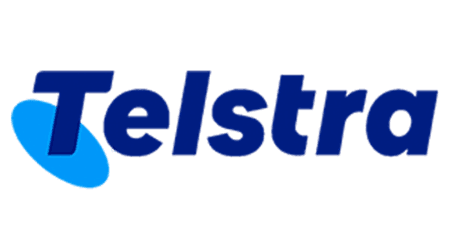
Telstra
Telstra has an amazing network, reaching 99.7% of Aussies, and has the fastest mobile internet on offer. But it's pretty spenno.
If you live in rural Australia, Telstra (or a network on the Telstra network) is probably the way to go. In the cities you might be better off with a cheaper brand.
Learn more with our full Telstra review.
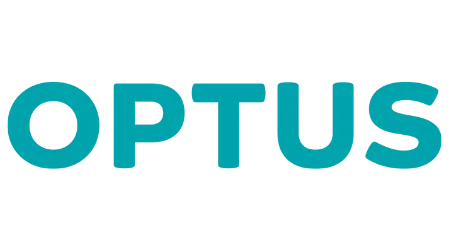
Optus
Optus is the number 2 network, reaching 98.5% of Aussies, also with great speeds. It's definitely cheaper than Telstra too.
Optus may be worth it if you want to access Optus SubHub to bundle and save on your streaming subscriptions.
Learn more with our full Optus review.

Vodafone
Vodafone is right behind Optus for network coverage, reaching 98.4% of the population. It's also the cheapest of the lot.
All Vodafone plans have effectively unlimited data (it just slows down after you hit the cap) as well as the $5-a-day roaming deal - arguably the best international roaming deal on the market. Great if go overseas.
Learn more with our full Vodafone review.
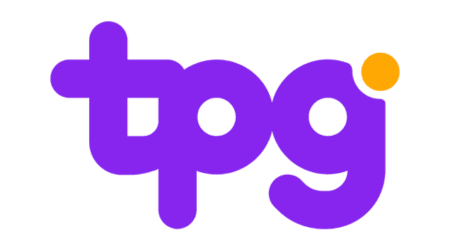
TPG
TPG, which runs on the Vodafone network, isn't known for flashy extras like the bigger telcos, but it offers great value.
TPG offers excellent value, with all plans less than our $1 per GB benchmark. Plus, full-month expiry periods mean you recharge less across the year.
Learn more with our full TPG review.
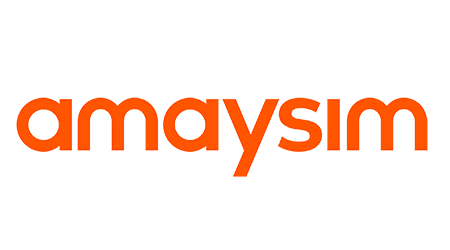
amaysim
amaysim has a strong reputation for simple plans with heaps of data.
It's on the Optus network and runs generous bonus data on your first 1–3 recharges. However, 28-day recharge period means 13 recharges per year, rather than 12.
Learn more with our full amaysim review.
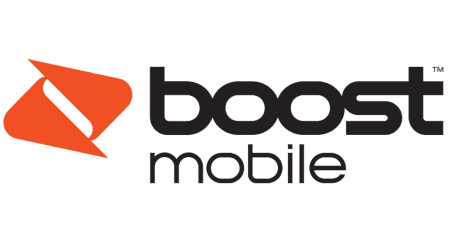
Boost Mobile
Boost gives you full access to Telstra's 4G network at a cheaper price. In fact, it's the only non-Telstra provider to have the full retail network, rather than the slightly less good wholesale network.
Boost have expiry periods between 7 days and 12 months, which is cool.
Learn more with our full Boost mobile review.

Are you looking for a prepaid mobile plan that fits your needs but doesn't break the bank? With more than 150 offers out there, it can feel a bit overwhelming to narrow down your options. Hi, I'm Mariam, Finder's tech and utilities expert, and I'm here to help you figure out how to pick a prepaid plan that actually works for you.
Prepaid plans are all about flexibility. If you already own your own phone, you pay upfront for a set period, which could be 7 days, 28 days, a month, or even a full year. Before that period ends, you can recharge the same plan, switch to a different one if your needs have changed, or even try another provider if you find a better deal.
There are no lock-in contracts. Porting your number is usually pretty easy as long as it's under your name. And best of all, there are no surprise bills. Just keep an eye out for auto-recharge as some providers switch it on by default. If you don't plan to renew, make sure to turn it off or cancel the plan before your next recharge date.
So, how do you narrow things down? Start by thinking about how much data do you really need and then look at network coverage, plan features and finally the total cost.
Let's talk about data first. On average, Australians use about 10GB a month on a prepaid plan. But if you stream, game, or work from your phone often, you'll probably need closer to 15 to 20GB a month at least. Check your previous bills, your provider's app, or online portal to see your typical data use. This can be a good benchmark to work from. Some plans even let you roll over unused data to the next recharge so you don't lose what you've already paid for. It's a simple way to make sure you're getting value for your money.
Next, think about network coverage. All that data doesn't mean much if you can't get a strong mobile signal. There are three main networks in Australia: Telstra, Optus and Vodafone. Telstra has the widest coverage followed by Optus and then Vodafone. Smaller providers use these same networks to get you online. It's always worth checking a provider's coverage map on their website before signing up to make sure you'll get a good signal where you live or travel.
Then there are the extras. Some prepaid plans include international calls to certain countries or let you add on roaming if you travel. Just make sure you're not paying for extras you don't actually need.
And lastly, price. The average prepaid plan on Finder at the time of recording sits at around $39 a month, but there are cheaper options. For example, you can often find plans for around $25 with about 25GB of data. So, it really does pay to compare. If you already know which network you want and how much data you typically use, you could even save more with a long expiry prepaid plan. These can work out cheaper overall, but keep in mind you'll need to pay the full amount upfront.
So, whether you're after something short-term, long-term, or just want to stay in control of your spending, there's a prepaid plan out there that will fit your needs. You can easily spot current offers on Finder and use the filters to narrow down your options. Check out the link in the description to find the best prepaid plan or leave a comment if you have any questions. Bye.
Why compare mobile phone plans with Finder?

Genuine phone addicts. Unlimited scrolling and streaming, we got you. We track all offers daily so you can stay online all the time.
Cause we all hate caps. Our goal is to bring you all the good stuff, and surface any hidden fees. So you can get back to the fun stuff, like gaming.
Tried and tested. We give these plans a run for their money and listen to the feedback of the millions of Aussies who have used our plans comparison.
Frequently asked questions
Sources
Ask a question
42 Responses
Read more on Mobile Phone Plans
-
Pay as you go mobile plans
Pay as you go mobile plans are a great way to save money if you don't use your phone very often.
-
Cheapest 365-day prepaid mobile plans
Want to forget your phone bill for a year? We’ve rounded up the best cheap long-expiry prepaid plans plus 6-month options if you’re not ready to fully commit.

I have a Telstra $30 a month 2 gig laptop stick prepaid thing and a Telstra mobile phone at $50 a month for 2 gig and $10 for 1 gig if I use it all plus expensive international calls. I would like one bill for both devices with international calls for about the same prices but with more data than I have now.
Hello David,
Thank you for your inquiry.
It sounds to me that you want to consolidate both USB stick and phone in one bill. This can only happen if you’re on a postpaid plan, not on a prepaid.
You may check this page for a sim only plan for your mobile phone needs. Use the filters found on that page to further narrow down your options.
As for the USB stick, you can check our mobile broadband plans and customise the results based on price, usage, speed and contract.
We urge you to consider getting both services on one provider and see if you can get a bundle discount. However, if you can find a better deal by getting them from two different providers, it will be your decision. Don’t forget to read the fine print. :)
Hope this helps.
Cheers,
Jonathan
If I don’t have a 4G compatible phone and I do not wish to change it as yet, am I limited to a carrier as I notice they all say 4G? (example, Kogan offer, Vodaphone 4G)
Hi Eve,
Thank you for your reply.
You may still use or avail the services of any network carriers even if your phone is not 4G capable. The advantage of having a 4G capable device is that you’ll be able to utilize faster internet connectivity that is offered by 4G network.
Kind regards,
Jason
what are definitions for “Unlimited calls”. Does this mean unlimited call;s within Australia on standard numbers including those starting with 13, 1300 and 1800-. Also what is the definition of “Standard Australian numbers”?
Hi Ajith,
Thank you for your inquiry.
Just to confirm, which mobile plan service provider are you referring to? The “unlimited calls” feature depends on the type of plan and network provider. If you could provide a specific network/carrier, we will be able to check the coverage of the “unlimited calls” on their plan.
As for the Standard Australian number, this is any mobile number or landline number that has been provided by an Australian carrier.
Cheers,
May
I am looking for a prepaid mobile plan for my elderly mother, with unlimited calls to local numbers and no data.
What’s about?
Hello Phil,
Thanks for your question.
With regards to your concern, you may check the mobile plans featured on our website and read more about these products.
I hope that helps.
Cheers,
Harold
I am looking for a mobile plan with a long expiry which allows calls to the 1900 numbers
Hi Mary,
Thanks for your comment.
The following prepaid mobile plans all sell long-expiry prepaid plans. They can all be used to call 1900 numbers, but this will incur a premium fee.
Optus
Vodafone
Telstra
I hope this helps,
Brodie